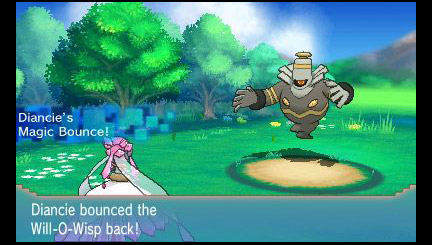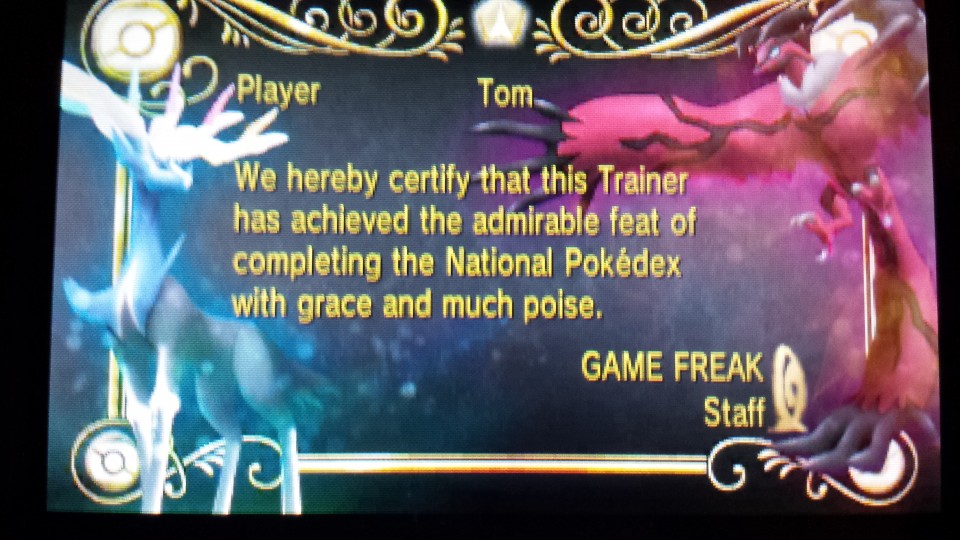Ok hear me out on this one. It sounds crazy but it’s something I’ve been thinking about for a while…

I love Pokémon, but if you don’t know what it is… Pokémon is a multimedia franchise centred around a series of video games created by Game Freak, and published by Nintendo. In the (main) games, you play as a child or teenager who lives in a world where people live alongside fantastical creatures called Pokémon. These creatures mostly resemble real world animals and things, and wild ones can be ‘captured’, tamed, and trained to battle each other for sport.

There are two main aims to the game. The first is to become the Pokémon League Champion — effectively the world champion at the sport of Pokémon battling. That’s the less interesting of the two aims. The other aim is encapsulated in the famous slogan of the franchise — you gotta catch ’em all! What does this mean? It means you have to collect a specimen from every Pokémon species in the world… all 721 of them!!

As an aside, yes, it is ‘basically like cockfighting’, but I want to stress that the games do go out of their way to emphasise the love and friendship between humans and Pokémon, and how the Pokémon do choose to fight alongside you, and how you’re encouraged to see your Pokémon as partners and friends. A key theme is living in harmony with nature. It’s a very positive, animal-loving message overall.

So, the reason you gotta catch ’em all is that at the start of each game a Pokémon professor gives you a Pokédex — a device which can analyse every Pokémon you catch to tell you information about it. but it’s given to you devoid of data — it has no information about any Pokémon in it. You are then instructed to complete this Pokédex, i.e. you must use it to scan every Pokémon in the world once. Your task is to create a complete encyclopaedia of every species of these mysterious creatures.

What is the purpose of this task? The game hammers the point home quite thoroughly — nothing more than the pursuit of knowledge! Various characters in every game say things like “there’s still so much we don’t know about Pokémon”, and “the power of science is staggering!”… Every game’s professor is explicitly stated to be researching some different aspect of how Pokémon work, from breeding, to evolution, to their habitats, to their origins.

These professors are all naturalists, working in labs, studying specimens, (presumably) publishing research. One professor even starts the game in some tall grass doing field work. As you progress you can ask the professor to evaluate your Pokédex, and if you do they’ll give you advice on other places to look, and other things you can do to find more Pokémon. You effectively play as their unpaid intern, doing a PhD’s worth of work in categorising every single one of the hundreds of species of Pokémon! Err… your payment is adventure?
Anyway, looking back, it’s great how a love of science and naturalism is instilled in the player as they play the game. Why explore that dark cave, or that deep ocean, or dense woods, or icy mountain? Simply for the joy of discovery. Who knows what rare new specimen could be lurking in that hidden alcove? It fosters a wonderful sense of exploration, and this is deliberate. Satoshi Tajiri, the creator of Pokémon, was an avid bug collector as a child. Here’s what he had to say about bugs when discussing his inspiration for Pokémon:
They fascinated me. For one thing, they kind of moved funny. They were odd. Every time I found a new insect, it was mysterious to me. And the more I searched for insects, the more I found. If I put my hand in the river, I would get a crayfish. If there was a stick over a hole, it would create an air bubble and I’d find insects there. I usually took them home. As I gathered more and more, I’d learn about them, like how some would feed on one another. So I stopped bringing them home. But I liked coming up with new ideas. Like how to catch beetles. In Japan, a lot of kids like to go out and catch beetles by putting honey on a piece of tree bark. My idea was to put a stone under a tree, because they slept during the day and like sleeping under stones. So in the morning I’d go pick up the stone and find them. Tiny discoveries like that made me excited.

It’s hard to come away from a Pokémon game and not want to become a naturalist, to not get enthused by taxonomy and the life sciences. It just makes it all seem so idyllic and exciting. All you need to do to know everything about a species is to throw a Poké Ball at it!
But does it teach you to be a good scientist? Maybe. It depends on what qualities a good scientist has. If passion, love of knowledge and exploration, dedication, an appreciation of nature’s beauty, and a bit of a completionist streak make a good scientist, then the Pokémon player is an ideal one! Or perhaps not… I’ll discuss the flip side of the ‘Pokémon player as scientist’ idea next week!